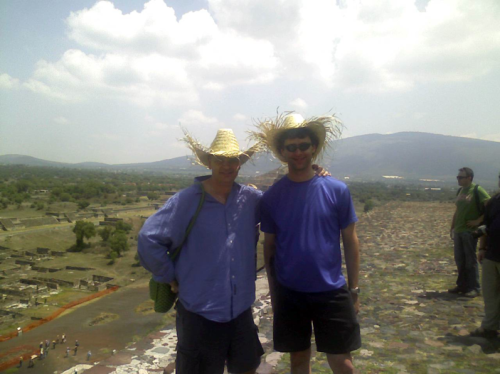Jens Lindemann and The United States Army Band, Pershing's Own: Monday YouTube Fix
Andrew Hitz
I'll never forget meeting Jens Lindemann. Boston Brass had a few hour layover at LAX the summer of 2001 and Jens and his wife, Jennifer Snow, came to meet us at the LAX Marriott for a quick meal. All seven of us basically laughed uncontrollably for two hours before we got back on the plane. Instant friendships were born. Jens had recently retired from the Canadian Brass and taken as the trumpet professor at UCLA, a position he still holds today. We traded road war stories and vowed to work together as soon as possible. As chance would have it, both of our trumpet players' wives gave birth to kids within the next two years and Jens filled in each time.
I have also been fortunate to work with him on some other occasions as well, the most notable being in Mexico. He called me and asked if I wanted to play in a brass sextet with him, Jim Thompson, Fred Mills, Marty Hackleman and Julio Briseno in Texcoco, just east of Mexico City. I thought he was playing a joke on me! It was one of the highlights of my career.

As you can tell by this clip, Jens is one of the best players in the world. I have also learned an invaluable amount from him about being a showman. He is a master as you can see from the beginning of this clip. Jens is a true inspiration as an entrepreneur and artist. He is a beast on the trumpet and sounds amazing along with The US Army Band, Pershing's Own from the National Trumpet Competition in 2012.
Enjoy!